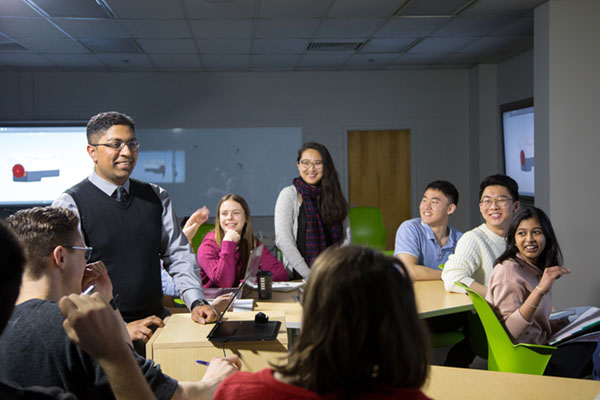The University of Toronto’s Faculty of Applied Science & Engineering has long been a leader in shaping engineering education in Canada. To further advance our efforts, the Faculty created the Institute for Studies in Transdisciplinary Engineering Education & Practice (ISTEP).
ISTEP brings together units from across U of T Engineering — each with dedicated initiatives, programs, researchers and staff. Together, our research activities span a wide range of areas that contribute to U of T’s robust and diverse expertise in engineering education. We collaborate widely — both within U of T and with partners beyond — to explore the nature of transdisciplinary competencies within engineering contexts, understand contemporary engineering practice, and develop pedagogy and programming to better prepare engineering students to benefit society and enjoy career success in a rapidly changing global marketplace.

Our core research activities fall into three major interrelated areas
Through our research we are reimagining the domain of 21st century engineering and the identity of engineers.
Engineering Education
We are evaluating the benefits of innovative instructional strategies and spaces to enable richer and deeper student learning. For example, we are deploying active and technology-enhanced learning, designing assessment tools to provide more meaningful feedback, and using data analytics to better understand student experience. Our research ranges from examining theories and paradigms in engineering education, to applied studies of instructional interventions to support course delivery and program development.
Transdisciplinary Competencies
We are exploring how engineering students develop as leaders, how they work effectively in teams -both in person and virtually- and how best to nurture their professional and scientific communication abilities. This area also includes research around access, equity, diversity and inclusivity, and is helping to shape the nature of competencies such as communication, leadership, teamwork, and entrepreneurship in engineering contexts.
Engineering Practice
We are examining how engineers across disciplinary, institutional, and organizational contexts address occupational, professional, and socio-technical challenges through their work. The situated nature of learning through a community of practitioners enhances our understanding of engineering education. We integrate findings from this research into professional development offerings with industry as well as our undergraduate and graduate classrooms, supporting students to develop their personal and professional identities.